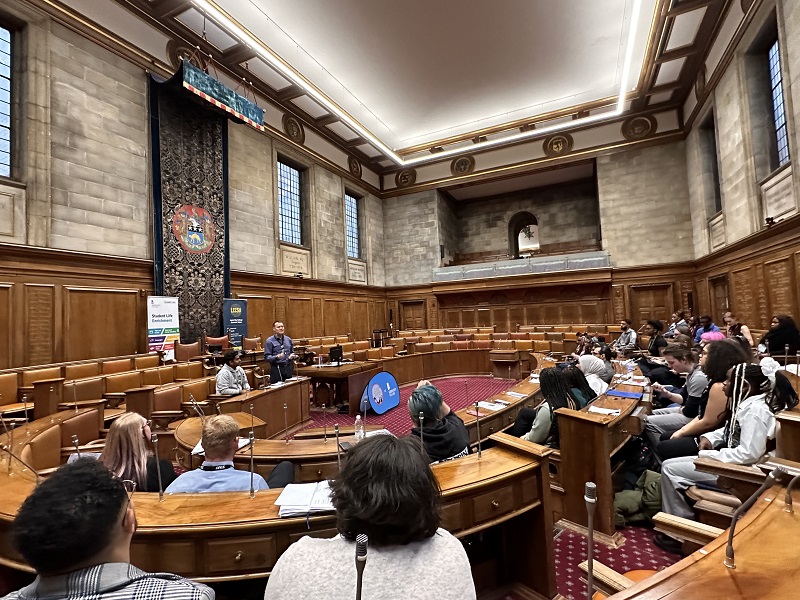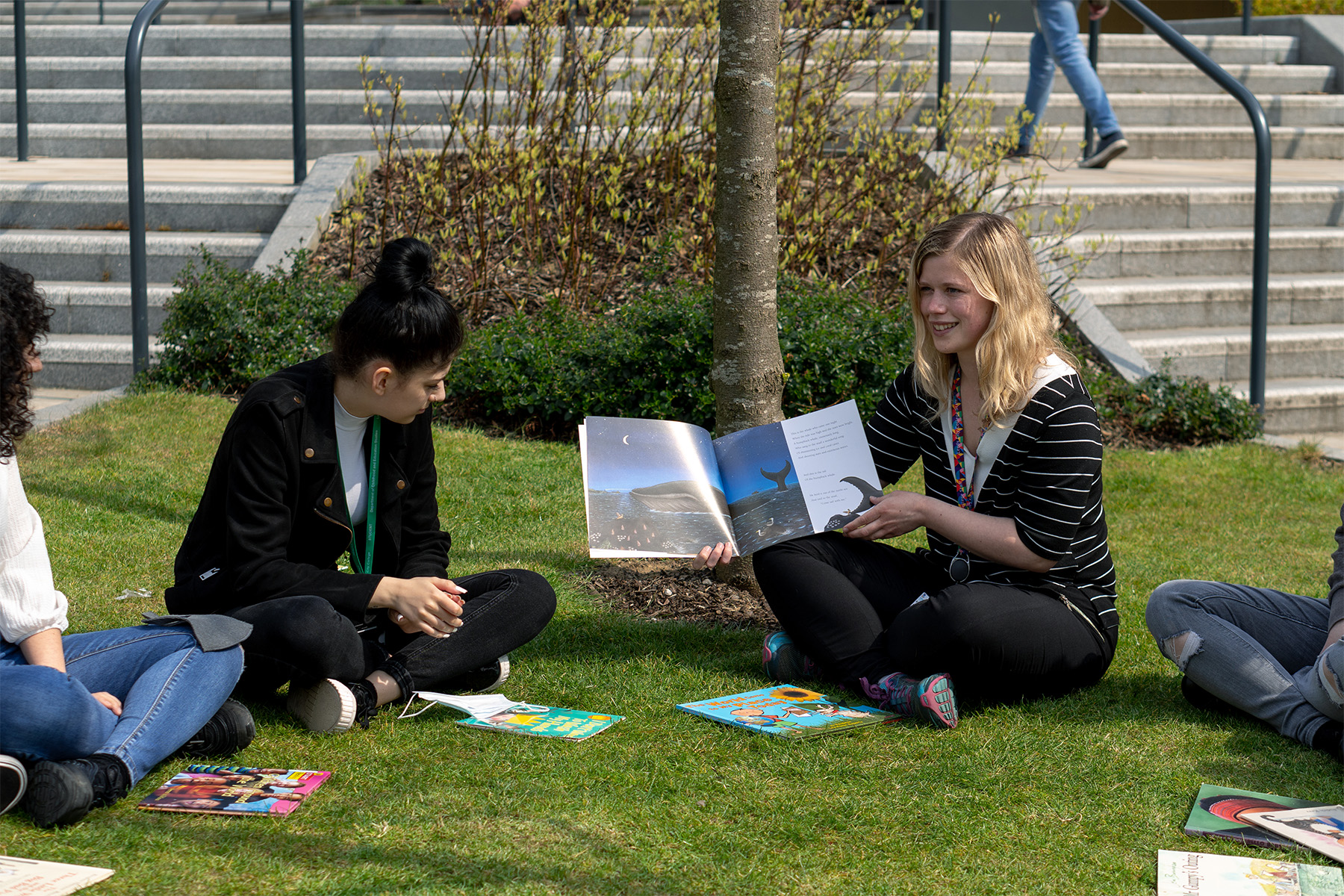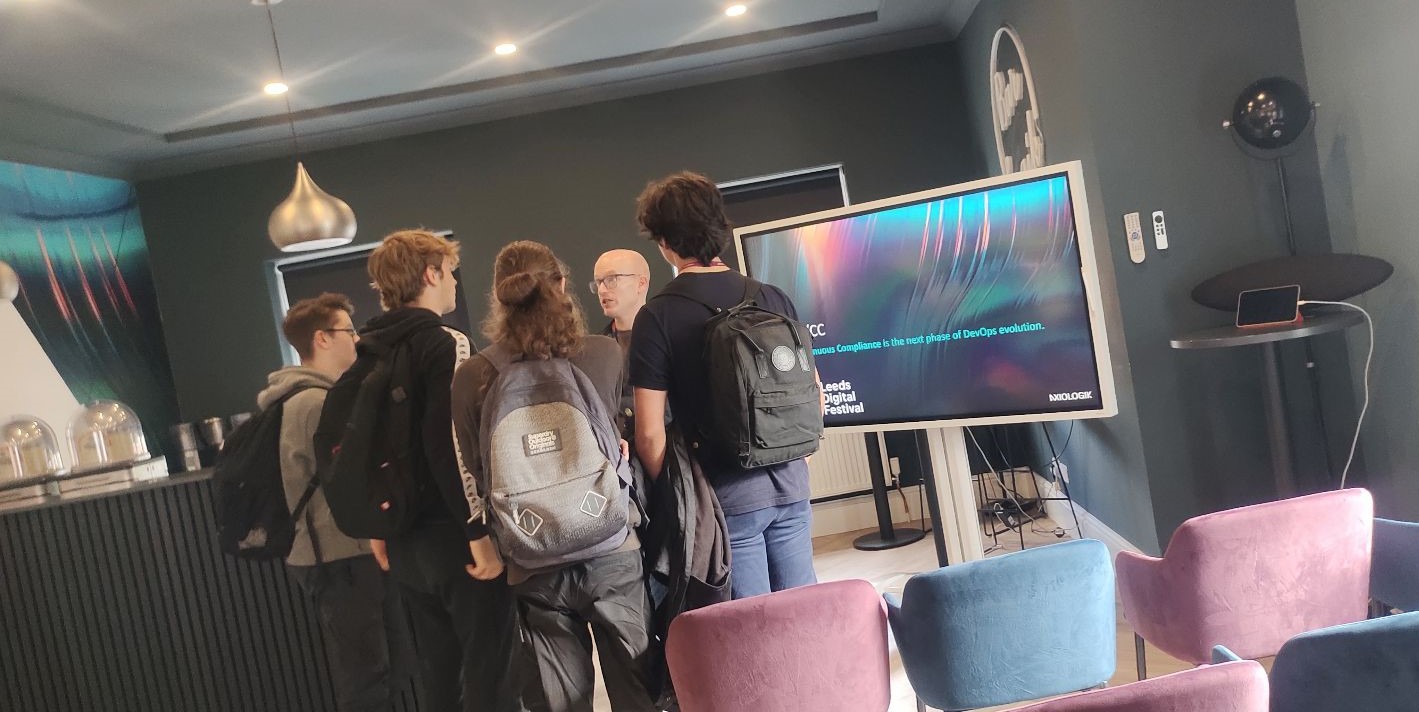Hate Crime Awareness Week – can you be an upstander?
Posted: October 5, 2022

Today, students at our Printworks Campus had the opportunity to hear from a member of West Yorkshire Police about how they can help to challenge, report and stop hate crimes.
This visit coincides with National Hate Crime Awareness Week, an annual awareness event that encourages people across the UK to work together to tackle local hate crime incidents.
The theme of this year’s campaign is ‘be an upstander, not a bystander’. Upstanders do their best to support and protect their peers, whilst a bystander is someone who sees bullying happening but does nothing to stop it.
With this in mind, we’ve come up with some hate crime FAQs to give you the knowledge you need to be the perfect upstander.
What is a hate incident?
Hate incidents are any incidents that are targeted at a person because of either hostility or prejudice towards that person’s:
- disability
- race or ethnicity
- religion or belief
- sexual orientation
- transgender identity
Hate incidents can also be committed against a person or property. A victim does not have to be a member of the group at which the hostility is targeted. In fact, anyone could be a victim of a hate incident.
What is a hate crime?
A hate crime offence is any criminal action or behaviour motivated by hostility or prejudice towards someone who belongs or is seen as belonging to one of the communities affected by hate crime.
How can I spot a hate incident?
There are five levels of hate and prejudice:
- Genocide
- Violence
- Discrimination
- Acts of prejudice
- Prejudiced attitudes
Prejudice attitudes such as accepting stereotypes, not challenging belittling jokes and scapegoating, are not criminal but may become criminal if acted upon (harassment, assault, criminal damage).
All hate crimes begin with prejudiced attitudes, which is why we need to challenge them.
At Leeds City College, we encourage people to report hate incidents because hate incidents often escalate into hate crime offences.
Why should I report a hate incident?
Hate crimes and incidents hurt. They can also be confusing and frightening for victims.
By reporting hate incidents and hate crime offences, we can enable the authorities and communities affected by hate crime to respond. Reporting hate incidents also enables victims to be signposted to the advice and support they may need.
Ultimately, reporting hate crimes can also help prevent further hate crime offences.
How can I report a hate incident?
There are several ways you can report a hate incident or crime, whether you have been a victim, a witness or you are reporting on behalf of someone else:
- If you feel comfortable, you can also go directly to the police by calling 101 or visiting your local police station
- If you don’t want to report to the police, you can speak to a trusted advisor such as a tutor or support organisation for help
- Our Safeguarding team can also direct you to the right source of support or advice. Find out more here
Hate crime is notoriously under-reported and sadly, too many people live in silence and fear.
As a community, it is vital that we come together against prejudice and hate to be upstanders for those who need us.
The only thing left to ask is: can you be an upstander?
For more information, visit the Stop Hate UK website.
Latest News
See all news stories
College Parliament highlights key student issues
Posted: 13 December 2024
Our College Parliament has met in Leeds Civic Hall again for the first time since the pandemic. The Members of Colle...

A spotlight on Education & Early Years T Level students
Posted: 5 December 2024
If working with children is your career goal, you might consider taking a T Level. Our second-year students share wh...

The Power of Networking at College
Posted: 2 December 2024
College is the perfect time to network! Explore how our students are shaping their future by building valuable conne...


Follow us on Social Media